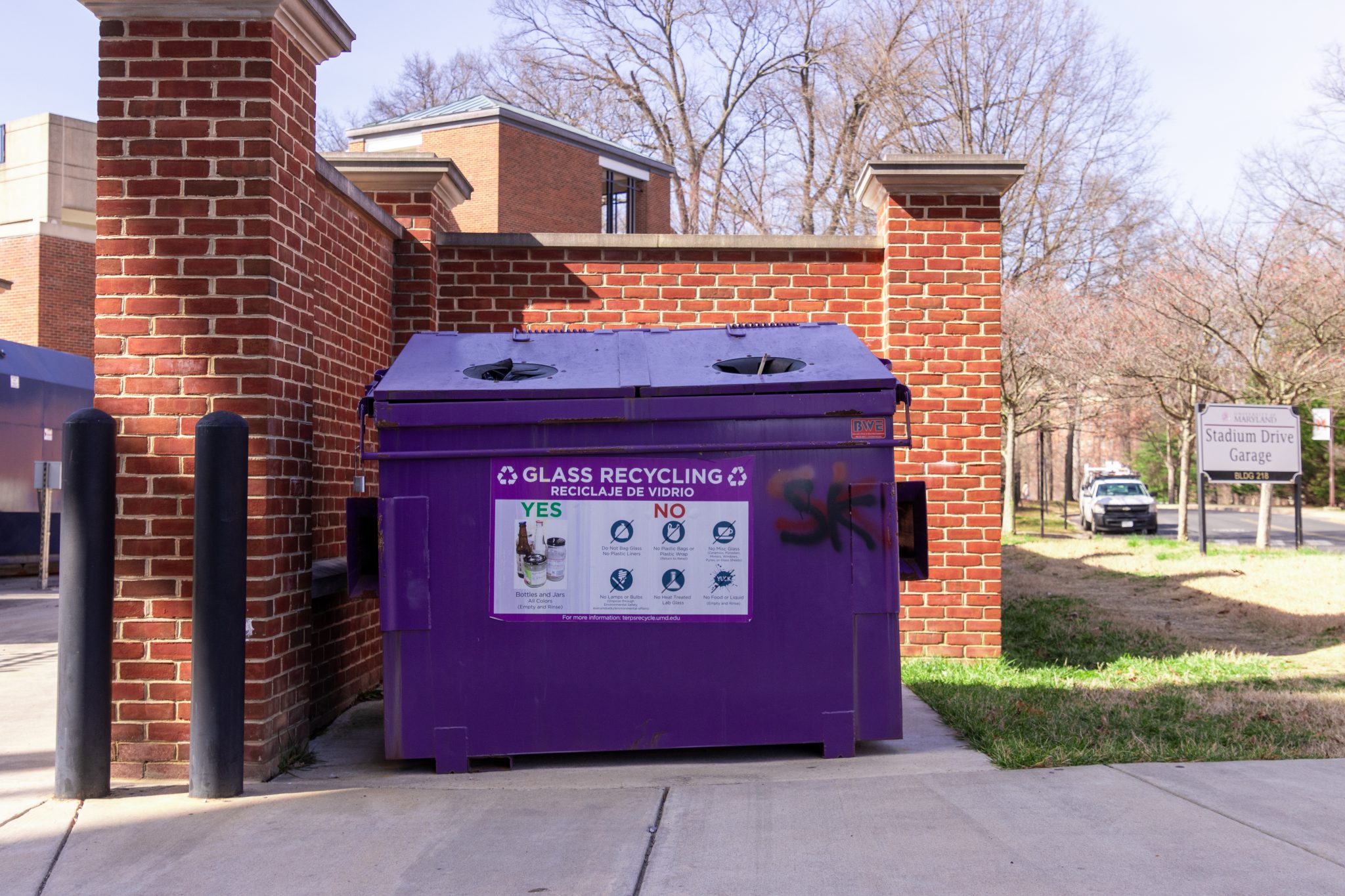The University of Maryland’s sustainability office is working to install six new purple recycling bins for glass across campus this month.
New bins are being installed near the Denton community, the Environmental Service Facility, the Field Hockey and Lacrosse Complex, Fraternity Row and Van Munching Hall.
A sixth bin will be installed at a location yet to be determined as of Feb. 14, according to Maryland Today.
The bins are funded by a $13,000 grant this university received in May to expand glass recycling. Their addition will bring the number of glass recycling bins on campus to nine.
Students are encouraged to rinse out glass containers before disposal to keep the bins from pests and waste, according to Jason Baer, the environmental safety, sustainability and risk department’s assistant director for environmental affairs.
In 2020, this university’s facilities management added three glass recycling bins near SECU Stadium, Annapolis Hall and Mulligan’s Grill and Pub at the University of Maryland Golf Course, the sustainability office’s coordinator for building and landscape maintenance Adrienne Small wrote in a statement to The Diamondback. These were the first glass recycling bins on campus.
[Prince George’s County gets its first weather monitoring station]
In the past, glass at this university was disposed of in standard trash bins, according to Small. They stopped being allowed in regular blue recycling bins when this university’s recycling processor began prohibiting glass items in 2019, she wrote.
Glass needs to be recycled separately from other objects because of the hazards sharp shards of present to workers, according to agricultural and resources economic professor Roberton Williams.
Williams said it’s important to divert recyclable materials to slow down the growth of already-cramped landfills. Disposing of glass sustainably can also conserve energy since new materials don’t need to be created, he added.
Recycling glass can also have economic benefits, according to Baer, because recycled materials are half the cost of regular waste to process.
“Every time you are able to source, separate and divide the materials out, there’s a significant economic saving,” Baer, who has a background in waste management and recycling, said.
[UMD researchers make breakthrough that could lead to climate-resistant crops]
Senior sociology major Solana Page said the addition of the new glass recycling bins is an important step, but she is curious to see how the university will educate students on how to use them.
“The glass bins are really important,” Page said. “But education is also just as important if you want these bins to be used and to be used properly.”
Some students are unaware of how to properly dispose of waste and often confuse trash, compost and recycling, Page said. She said she thinks this information should be taught as part of an introductory-level course.
This initiative will help this university achieve its sustainability goals, Small wrote in her statement.
“As a campus, our goal is to maximize landfill waste diversion so providing additional glass recycling dumpsters is another important step to achieve this goal,” Small said in the statement.



